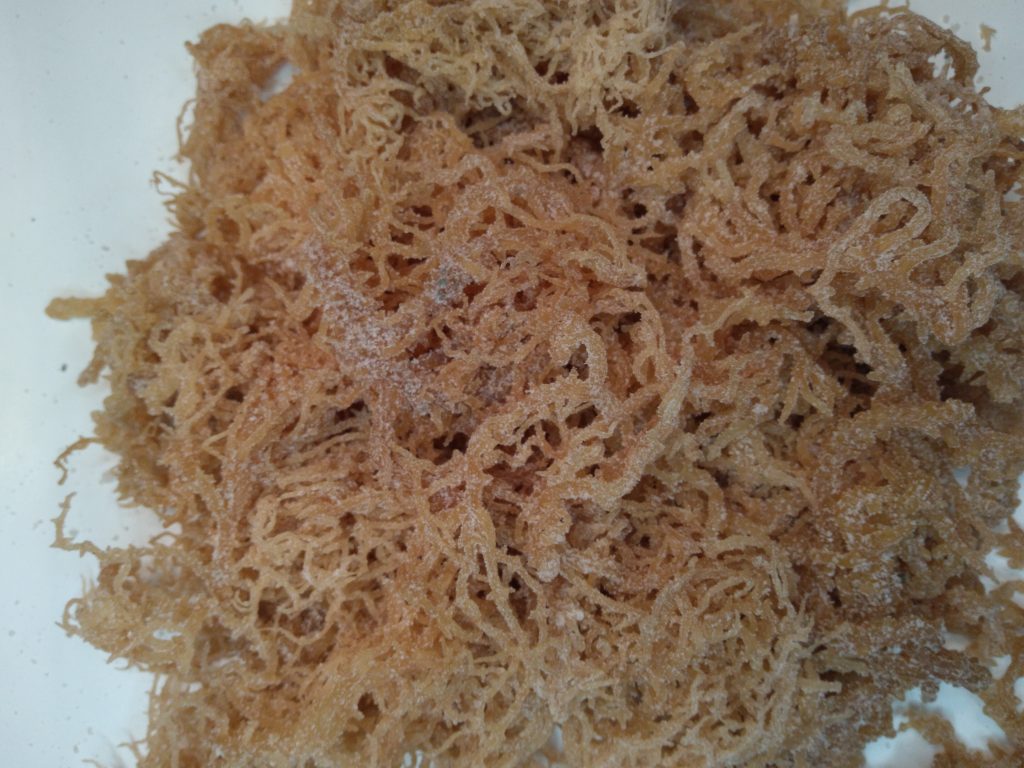
How does Sea Moss Boosts fertility and increase sperm count?
About 10% of women in the United States face problems in conceiving or maintaining pregnancy. Similarly, 9% of men in the United States have fertility problems.
The problem of infertility is so prevalent that the market is full of products that claim to work tremendously for your reproductive health overnight.
But how can we differentiate between fiction and facts?
Sea moss (scientifically known as Chondrus crispus) is a superfood that contains over 90 essential minerals, vitamins, antioxidants, and nutrients that are must for your overall health.
This moss is often praised for its capability to enhance reproductive health in both men and women; however, what does science say?
This article provides a detailed analysis of current research on the effects of Irish moss on reproductive health and how it can increase sperm count.
Causes of male infertility
In general, male infertility is associated with the following problems:
- Infective sperm production
- Insufficient Sperm number or sperm count
- Sperm shape
Sperm motility including both wobbling movement of the sperm itself and transport of sperm through the ducts of the male reproductive system
There are various risk factors, medical conditions, and medications that can also affect fertility. The nutritional factor is the most common cause of male infertility

What is sea moss?
As mentioned earlier, it is a red algae/seaweed and shares this classification with the more famous cousin Nori. It is also known as the Irish moss.
Inhabiting the northernmost tip of the Atlantic Ocean, it was harvested primarily in Northern Europe and the northeastern United States.
It is also found around the Caribbean islands and is touted as an aphrodisiac for men (more on this later).
Most commonly used in carrageenan outside the Caribbean, carrageenan is used to enrich drinks and food.
What are claims about fertility and sea moss?
If you are struggling to get pregnant, this certainly makes it interesting as a universal remedy.
In the Caribbean, it is commonly used as a natural sexual improvement product for men. Many say it can increase sperm count and boost testosterone levels to increase fertility.
For women, its nutrients, especially calcium, iodine, vitamin B, and zinc, are the driving force behind fertility that can speed up the pregnancy process in the event of a problem.
What does the research say?
So is the claim valid? Let’s take a look at what we already know and what the research says explicitly about seaweed.
The evidence is almost anecdotal as to whether it is a male aphrodisiac-and it’s okay.
If those who eat this Irish moss (or make gels from it) believe that it enhances sexual desire and function, it’s probably the case with them too.
But does seaweed increase testosterone, and does higher testosterone mean greater fertility? The short answer is a double disappointment: there is no scientific research suggesting that seaweed increases testosterone, and higher testosterone does not mean that you are more fertile.
Indeed, the body needs testosterone to produce sperm, which is needed to fertilize an egg and become pregnant. However, increasing the amount of testosterone that circulates in the blood does not increase or improve sperm. Other hormones are the cause too.
However, its nutrients can contribute to a healthy diet and help alleviate problems that contribute to male infertility, such as obesity and metabolic syndrome.
Top nutrients that make sea moss a fertility superfood
If you are suffering from fertility problems, you need to look at your diet. Do you lack some essential nutrients?
Studies show that in 50% of cases of unexplained infertility, major micronutrients may be the cause of infertility.
What makes Seamos stand out is its ability to provide a blend of important nutrients for improving fertility, such as iodine, folic acid, and iron.
- Iodine
The reason Irish moss can increase its reproductive potential is due to its unrealistic iodine content. With only 10 grams of seaweed, you can get more than 80 μg of iodine. This is more than 50% of the recommended daily intake standard (RDA) for this nutrient.
- Folic acid
Sea moss is also rich in this nutrient, which stimulates fertility. From 100 grams of sea moss, 182 µg (almost 50% of the folic acid RDA) is obtained.
- Iron
It is a true miracle food when it comes to iron. You get up to 9 mg of iron from 100 grams of seaweed. This represents almost 70% of your daily iron intake.
Sea Moss and prostate health
The prostate is the male reproductive organ, and its main function is to help sperm production. The muscles of the prostate gland shoot sperm during ejaculation.
Prostate cells store more zinc than any other cell in the body! The prostate contains a high concentration of a mineral called zinc.
Zinc has also been shown to have a strong effect on testosterone levels and directly affect the ability of the testes to function correctly. These are two crucial aspects of sexual health.
Zinc supplementation has significantly increased sperm mass, sperm motility, and the proportion of normal sperm morphology.
How does it relate to the sea moss? Only 100 grams of this moss contains more than 10% of the recommended daily intake of this essential mineral.
The health of your sperm, the strength of your prostate, and the number of sperms you can produce are all greatly enhanced by zinc.
Final Verdict
Undoubtedly, it is a great superfood packed with essential nutrients such as minerals and vitamins.
In terms of fertility, taking Sea moss supplements may improve reproductive health but should not be considered a complete solution to fertility problems.
However, be careful when eating large amounts or taking them in the form of tablets. Supplements are not as regulated as medicines, and too many of them pose a risk of health problems.
If you are dealing with infertility, you can feel very lonely when you see family and friends getting pregnant around you. However, don’t worry. You are not alone.
Your doctor can turn you in the right direction to get what you need to help you grow your family.
Use it as an adjunct to a healthy diet, active lifestyle, and medical advice.
